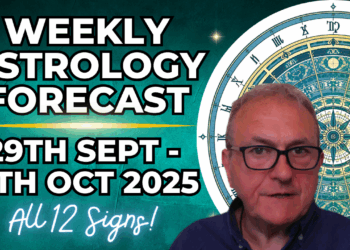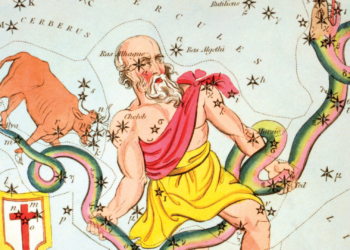
By Srini Pillay, M.D.
Miracles are events that cannot be explained by logic. They are also relatively rare. Most commonly, miracles are thought to come from God or an agent of God, so they defy rational explanation. Often, they are invoked through prayer — a call to God to defy the natural laws of the universe and somehow perform a surprising act that one benefits from. Those who have experienced miracles stand by them. Others consider them a ridiculous explanation of spurious deviation from the natural law. In this article, I will consider three arguments against miracles and explain why they may be flawed.
Argument 1: Miracles are random acts of luck or chance.
Because the frequency of miracles cannot be predicted, it is difficult to argue that they are a part of the natural law. Indeed, they do appear to be lucky events due to chance. Still, this does not prove that they do not exist or cannot be invoked. One would have to entirely discard the fact that there is a science to “luck” or “chance” for there to be no science behind a miracle. Many important discoveries and events have appeared to be entirely improbable before they were proven to be true.
For example, it took 200 years for the theory of relativity to supersede Isaac Newton’s theories. What if studying miracles could lead us to transcend the theory of relativity? The theory itself is not due to chance, but finding it was not exactly a replicable scientific experience.
 Implications: Abandon logic when you are trying to discover something unlikely. In my book “Tinker Dabble Doodle Try,” I explain the various ways that you can do this. Start by thinking that the miracle you are interested in may be possible. Then, continue your journey of discovery the way Christopher Columbus set sail and accidentally stumbled across the Americas.
Implications: Abandon logic when you are trying to discover something unlikely. In my book “Tinker Dabble Doodle Try,” I explain the various ways that you can do this. Start by thinking that the miracle you are interested in may be possible. Then, continue your journey of discovery the way Christopher Columbus set sail and accidentally stumbled across the Americas.
Argument 2: Miracles have not been proven by scientifically validated double-blind trials.
Double-blind trials are the gold standard of scientific investigations. They prove whether medications work beyond chance and whether they are statistically likely to work. Most trials have to show that there is at least a 95 percent chance that a medication is not just a sugar pill. If there is a 6 percent chance that a medication may be acting like a sugar pill, it is generally not approved.
Think about this: If a medication is like a sugar pill in six out of 100 cases, we throw it out. We call this “high standards.” I call this a waste of time and resources. Sure, we can keep our high standards, but how can we just discard something that could help in 94 of 100 instances?
This is all to say that the double-blind trial does not address the immense variability there is in human beings. It is a crude and inferior way of testing the value of anything.
One example of a miracle is intercessory prayer — a prayer for the well-being of others who are not aware that they are being prayed for. One study showed that patients in a cardiac unit benefitted from such prayer. They required less breathing assistance, antibiotics, and diuretics. Another study showed that it helped the spiritual well-being of cancer survivors. Yet another study showed that it could even improve hearing and vision.
Despite these studies, this method of healing has come under scientific attack. Many of these criticisms were justified: One study found that intercessory prayer does not help kidney dialysis patients, and another found that it is actually associated with more cardiac complications in bypass patients.
Why is there a variation in outcome in the miracle studies? It might be because miracles do not work for everybody. Or it could also be that people who deliver them are not all the same. Millions of other things can stand in the way of why miracles do not work. The perfect trial is one that is done for one person only.
Implications: Scientific trials are wholly inadequate for understanding the complexity of whether miracles happen. Instead, you should explore this for yourself. See whether you can develop a genuine understanding of the faith-based mindset. As Steve Jobs said, “You have to trust in something — your gut, destiny, life, karma, whatever. This approach has never let me down, and it has made all the difference in my life.” He applied this theory to his creations. But did he apply this to his life by going all the way to believe in God and miracles?
Argument 3: People who believe in miracles are biased.
You would be hard-pressed to deny the fact that miracle believers are biased, but so are scientific investigators. People believe that most scientific studies are “blinded,” but they are not. In fact, it is rare that a meat-eating scientist will conduct experiments demonstrating that meat is bad for you, and it is not uncommon for scientists to support a finding consistent with the needs of a funding source. As a result, many people believe most published research findings are false.
Implications: Bias is not always bad. Sometimes, it persuades people to keep studying ideas that they believe in and love. Of course, we should exercise caution when interpreting findings, but bias in itself is not a reason to not believe in miracles.
Miracles are poorly understood, but there are clearly sufficient studies and anecdotes to warrant continued interest in them. While it's difficult to prove that miracles can be easily replicated, it's important to be aware that current arguments against miracles may be flawed. We might not understand the science of luck, but that does not mean it ceases to exist. Remember, current standards for clinical trials are significantly skewed, so conflicting findings mean little. And bias both helps and hurts the cause of miracles.
If your mind is spinning after considering these ideas, I would suggest that you recognize that miracles may require a different mindset than pure logic. Understanding this mindset more closely could be worth at least as much as investing in the current logic-driven mindset of science. Together, both of these mindsets may be just the ingredients that will open up the possibility of greater discoveries.
About the Author
 Srini Pillay, M.D., is the CEO of NeuroBusiness Group and the award-winning author of numerous books, including “Tinker Dabble Doodle Try: Unlock the Power of the Unfocused Mind,” “Life Unlocked: 7 Revolutionary Lessons to Overcome Fear,” and “Your Brain and Business: The Neuroscience of Great Leaders.” He also serves as a part-time assistant professor of psychiatry at Harvard Medical School and teaches in the Executive Education Program at Harvard Business School.ng>
Srini Pillay, M.D., is the CEO of NeuroBusiness Group and the award-winning author of numerous books, including “Tinker Dabble Doodle Try: Unlock the Power of the Unfocused Mind,” “Life Unlocked: 7 Revolutionary Lessons to Overcome Fear,” and “Your Brain and Business: The Neuroscience of Great Leaders.” He also serves as a part-time assistant professor of psychiatry at Harvard Medical School and teaches in the Executive Education Program at Harvard Business School.ng>















